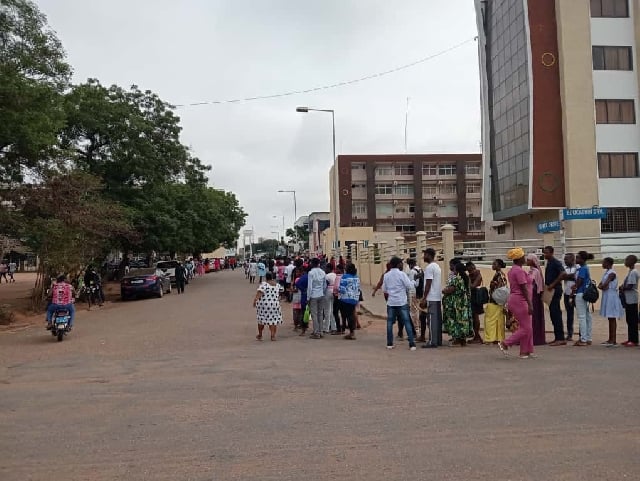The Ghana Education Service (GES) is set to release a nationally harmonized prospectus to guide parents and guardians preparing their children for their first year in senior high schools and other second-cycle institutions. This prospectus aims to standardize the list of required items across all schools, minimizing confusion and ensuring uniformity. While the finalized list is expected to closely resemble previous versions, including standard items like trunks and chop boxes, the GES is consulting with school heads, teachers, and parents to ensure it reflects a broad consensus and addresses the needs of all stakeholders. This announcement comes ahead of the October 18 reporting date for all first-year students, regardless of whether they are under the single-track or transitional double-track system.
The placement of fresh students into various senior high schools and technical schools through the Computerized School Selection and Placement System (CSSPS) has generated a mix of excitement and anxiety among families. While the joy of securing a place in secondary education is palpable, the financial implications of preparing for boarding life are a significant concern for many parents. Across the country, parents are grappling with the costs of essential items like chop boxes, mattresses, bedsheets, toiletries, and learning materials like calculators. The impending release of the GES prospectus is eagerly awaited by many to avoid unnecessary expenditures on items that might not be permitted.
For some parents, the financial burden is amplified by having multiple children entering secondary school simultaneously. Mr. Nhyira, a commercial driver whose twin daughters gained admission to Achimota School, faces the daunting task of purchasing two sets of every required item. Similarly, Rebecca Afriyie, also a mother of twins, is cautiously waiting for the official prospectus before making any purchases, hoping to avoid buying items that might later be rejected by the schools. This cautious approach underscores the financial strain experienced by many families as they strive to equip their children for their secondary education journey.
Other parents have adopted a proactive approach, starting their preparations early. Auntie Cece, for instance, began shopping for her daughter’s admission to Aburi Girls SHS immediately after the Basic Education Certificate Examination (BECE), guided by the experience of a niece who recently completed SHS. This forward-thinking strategy allows for a more measured and less frantic approach to acquiring the necessary items. Similarly, Janet Yeboah, a secondhand clothes dealer, expressed relief at her son’s placement at Accra Academy and has already procured the generic items, awaiting the school’s specific list. These varied approaches highlight the diverse circumstances and strategies employed by parents navigating the back-to-school preparations.
The anticipation surrounding the start of the academic year is palpable in markets across the country. In Sunyani, the Everyday Market is bustling with parents purchasing various items, from trunks and mattresses to books and provisions. The familiar white shopping lists are a common sight, and bargaining with traders is a prevalent activity. The financial commitment required is substantial, as illustrated by Atta Yeboah, who has already spent nearly GH¢3,000 on school supplies for his son’s admission to Nalerigu SHS. Despite the recent appreciation of the cedi, the high cost of goods remains a significant concern for parents.
The financial sacrifices made by parents to ensure their children’s education are evident in stories like that of Monica Dufie, a single mother and farmer from Benu Nkwanta. To fund her daughter’s admission to Sunyani SHS, she resorted to selling her livestock and farm produce. Her determination underscores the value placed on education and the lengths to which parents will go to provide opportunities for their children. This year’s placement figures reveal that out of the 603,328 candidates who sat for the BECE, 590,309 qualified for placement. Of these, 483,800 students, representing 82 percent, were successfully placed in various secondary institutions, including senior high schools, senior high technical schools, and technical and vocational institutions. The release of the harmonized prospectus by the GES is expected to provide much-needed clarity and guidance to parents as they finalize their preparations for the upcoming academic year.














